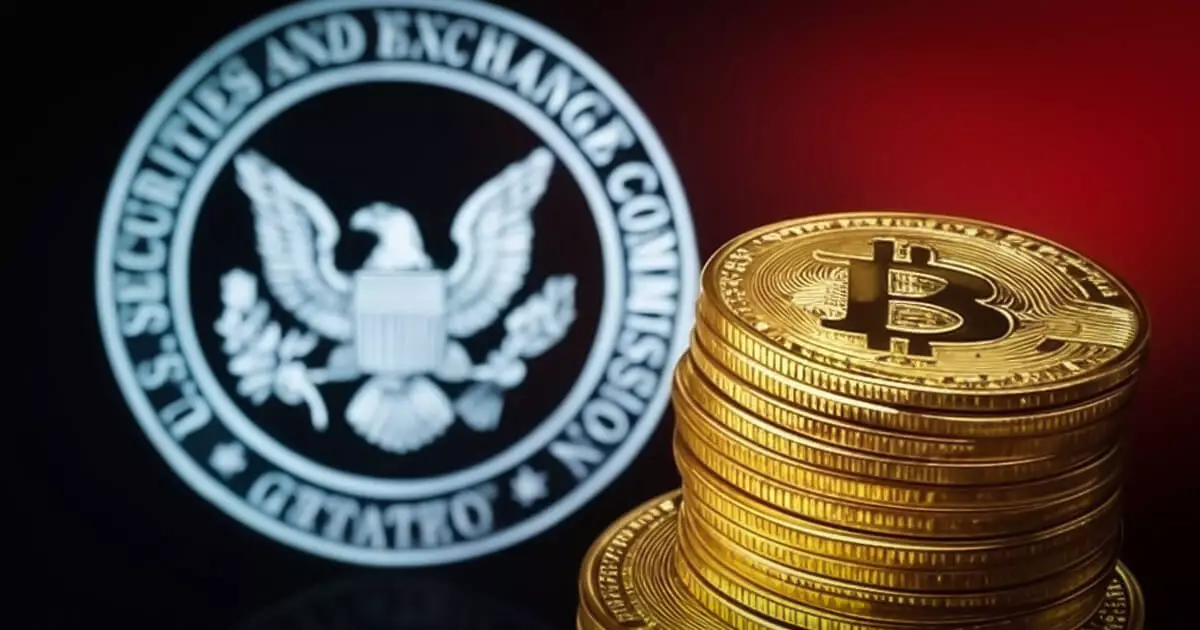As a new political era unfolds under President-elect Donald Trump, significant changes loom on the horizon for the U.S. Securities and Exchange Commission (SEC). The agency is reportedly gearing up for a re-evaluation of its stance towards cryptocurrency firms, a pivot that has significant implications for the burgeoning crypto market. According to reports from Reuters, insiders suggest that SEC commissioners known for their pro-crypto perspectives, Hester Peirce and Mark Uyeda, are poised to make substantial changes in the SEC’s existing frameworks and enforcement protocols. This potential shift isn’t merely a matter of policy but touches upon broader themes of regulatory clarity, corporate compliance, and the overarching influence of politics in financial regulations.
A Need for Clarity
One of the pressing matters to be addressed is the definition of what constitutes a security in the realm of cryptocurrency. The ambiguity surrounding this classification has confounded not only regulators but also investors and companies seeking to navigate the complex landscape of crypto. Peirce and Uyeda’s inclination to refine these definitions is critical, as it could lead to a clearer pathway for companies to engage with digital assets without fear of regulatory backlash. In light of the industry’s rapid evolution, this reform is long overdue—an opportunity to liberate businesses from the shackles of vague regulations.
However, skepticism remains. Legal experts point out that any changes in enforcement could come with significant risks. For instance, halting ongoing litigation might appear to offer some respite to struggling companies like Coinbase and Kraken, but it also raises concerns of favoritism and the politicization of legal processes. Such moves, if perceived as capricious, may undermine public trust in the SEC as a stable regulator dedicated to protecting investors and maintaining market integrity.
With Paul Atkins, a former SEC commissioner, expected to take over as SEC chair, the crypto community and industry stakeholders are keenly watching his aim toward less restrictive policies. As a co-chairman of the Digital Chamber’s Token Alliance, Atkins’ reputation as an advocate for more lenient regulations positions him to significantly influence the agency’s future direction. However, this proactive approach to lessening regulatory burdens might also draw critiques highlighting the delicate balance between innovation and accountability.
The anticipated shifts in policy raise questions about the SEC’s operational integrity. Could a prospective rollback of enforcement actions initiate a slippery slope, wherein each new administration reshapes regulatory norms to suit its agenda? Legal experts raise valid concerns that a lack of consistency could disrupt the already fragile compliance structures many firms have established, complicating their ability to do business effectively in a competitive and rapidly evolving landscape.
Another critical consideration involves the financial implications for companies operating in the crypto space. With many firms already grappling with substantial compliance costs, expected regulatory changes—such as the potential removal of restrictive accounting guidance—could encourage more companies to engage in the crypto market. However, this optimism is tempered by a realization that true regulatory reform requires time and consensus. The nuances of negotiation among regulators, lawmakers, and industry leaders could stretch out discussions about essential guidelines well into the foreseeable future.
As the SEC’s direction appears to pivot significantly, the response from the crypto industry will likely vary. Companies may push back on the notion of settling ongoing litigation, especially in light of what they might perceive as a potential double standard in enforcement policies. While some may welcome the chance to revisit settlement negotiations, others might find the prospect unsettling, given the previous administration’s rigid stance on these matters.
Philip Moustakis, a former SEC attorney, rightly indicates that a sweeping cessation of enforcement could carry long-term ramifications for the agency’s credibility. Maintaining trust among stakeholders demands a consistent application of rules, regardless of political transitions. In this context, the SEC’s future actions regarding enforcement will be instrumental in shaping the overall health and vitality of the U.S. crypto market.
As the Trump administration prepares to influence regulatory frameworks, it remains imperative for all stakeholders—from regulators to businesses and investors—to engage thoughtfully in the evolving narrative surrounding cryptocurrency regulation. The path forward is neither straightforward nor devoid of challenges, but clarity and consistency in policy-making will be essential for the development of a robust and responsible crypto ecosystem.


Leave a Reply